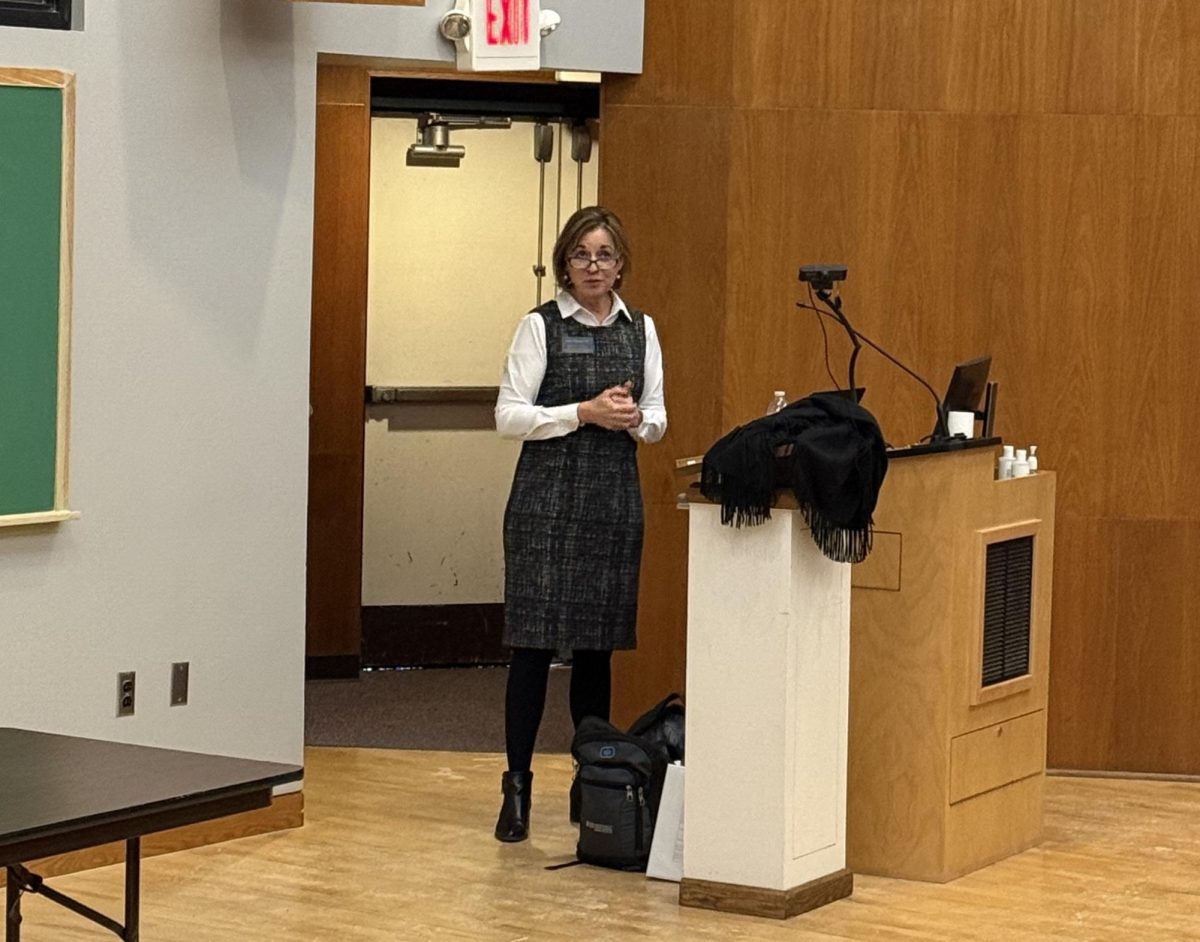A public health study by Associate Professor of Biology Becky Dawson and her students was recently covered by WHYY, an affiliate of National Public Radio. The study, titled “Differences in community health outcomes in counties with and without health departments in Pennsylvania,” was originally published by Springer Nature on Dec. 30. The study focused on public health departments and their significance in making Pennsylvanians healthier, finding that counties without a public health department had poorer health outcomes.
“The researchers also emphasize that all the local health departments in Pennsylvania are in urban counties,” the article stated. “Rural communities without health departments already lack access to health care, compared to urban communities.”
Dawson’s curiosity about the importance of health departments in dispersing information for illnesses began with the COVID-19 pandemic. As Americans across the country were told to listen to their health departments on what to do to protect themselves, Crawford County’s lack of a department left Meadville residents struggling with securing tests, vaccines and personal protective equipment. This gave her and her team the idea to conduct an epidemiological study: comparing the 11 counties that do have a health department with the 56 counties that don’t.
“As expected, we also found that the rural counties in Pennsylvania had worse health outcomes, and that’s kind of known across the United States,” Dawson said. “Rural communities lack access to care. They have usually higher rates of adverse behavioral effects, so more obesity, more, unfortunately, gun use, those sorts of things.”
The team assembled information from the Robert Wood Johnson Foundation, National Institutes of Health, National Cancer Institute and the U.S. Census to find differences in rural and urban counties. The team also controlled for which counties had the most individuals with health insurance and median age, all which were impacted on whether the county had a health department. “I think the big thing that we saw was that — we literally called it a ‘Double Whammy’ in the paper — was that all the counties in Pennsylvania that don’t have a local health department were also rural,” Dawson said. “So they were kind of this double whammy where they didn’t have a health department and were dealing with, kind of, the rural consequences.”
Biology major Sara Karns, ’25, was one of the researchers who helped with the study. She hopes that this research will be recognized nationally and will allow for more counties in Pennsylvania to open public health departments.
“I think it’s a really great first step. I don’t think that the research will be accomplished until it’s noticed and kind of prosecuted,” Karns said. “If we can see that there are better outcomes for local health departments, then we need to have a local health department at every county.”
This research comes at a significant time for public health in the United States. Robert J. Kennedy Jr., a controversial figure known for his dismissal of the COVID-19 vaccine, has moved ahead in his confirmation hearings to become the Secretary of Health. This also comes as reputable health information websites such as Centers for Disease Control and Prevention and the Atlas Tool, which tracks rates of infectious diseases, had pages removed at the behest of the Trump administration. This worries Dawson and Karns, who wonder why the information can’t be published.
“I’ve kind of been in a state of mind of ‘Let’s just wait and see, let’s just wait and see what happens,’” Karns said. “Maybe it will be temporary, which doesn’t make it ok, but I’m trying not to get too fearful yet.”
Dawson has fears specifically that her field will be erased if these actions continue. She’s grateful that she can still publish her research at Allegheny with students and her peers, but hopes stories and data are still widely available for analysis.
“Websites came down and now we know that our colleagues at other places are not going to have the freedom to publish the work that needs to be done to understand the health problems we’re facing,” Dawson said. “So, I do think that those of us that have the academic freedom have the responsibility to really dig in and to do the work because the research can’t stop.”
Categories:
WHYY shares Allegheny research on local health departments
Story continues below advertisement
0
More to Discover
About the Contributor

Paige Kageni, Staff Writer
Paige Kageni is a sophomore from the Central Pennsylvania area. She is planning to major in English and minor in Communications and Women’s, Gender, and Sexuality Studies. This is her second year as a staff writer for The Campus. In her spare time, she enjoys playing guitar, crocheting, and going on long walks.








